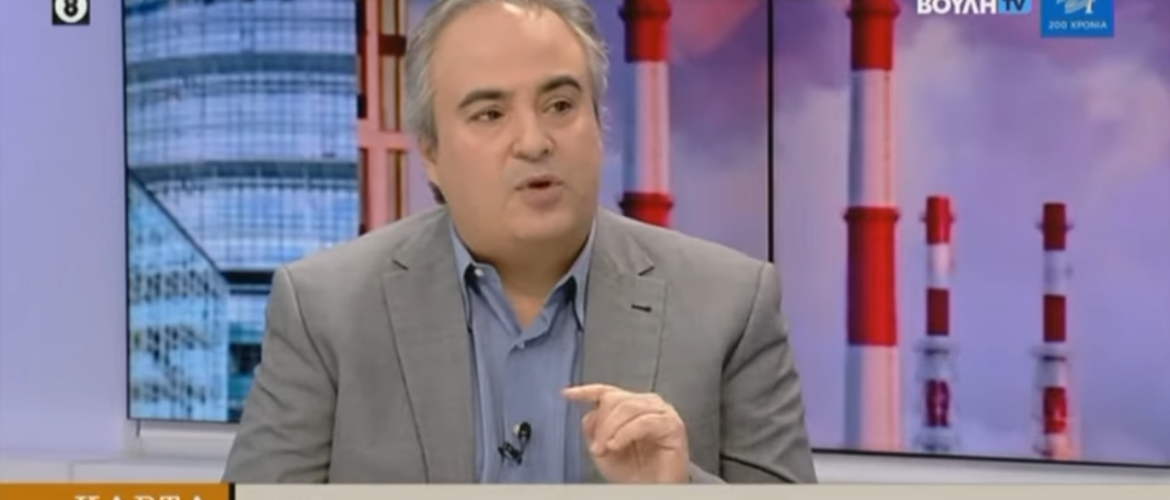Participation of Νikos Mantzaris in a TV discussion on the progress in tackling the climate crisis and the 26th world climate conference in Glasgow, hosted by Matroni Dikaiakou’s “Karta Melous” (Member’s Card) show on the Hellenic Parliament’s broadcaster.
Nikos Mantzaris explained that progress has been made, since before the Paris Agreement in 2015, humanity was on a 4oC global warming trajectory, while a few days before the start of the sessions in Glasgow, the measures and policies that are already implemented worldwide limit this rising to 2.7oC. Further progress can be made on the condition that all the commitments on climate neutrality made by the states up to the last days of COP26, which can lead to up to 1.8oC, as evidenced by four different scientific analyses showcase, will be implemented to the letter.
However, absolutely no complacency is allowed as the most immediate commitments made by the states for 2030 will lead to an increase in global greenhouse gas emissions by 13.7% compared to 2010 levels when scientists concluded that In order to have a realistic chance of keeping the global temperature rise to 1.5oC, it is necessary to reduce global emissions by 45% in 2030 compared to 2010.
Nikos Mantzaris also characterized as positive but insufficient the agreement of 103 states for the reduction of methane emissions, the second most important greenhouse gas after carbon dioxide. This is because the provision for a 30% reduction in emissions in 2030 compared to 2020 levels will lead to an additional reduction in temperature of only 0.04oC at a time when India’s insufficient commitment to climate neutrality in 2070, by 0.2oC. Much more drastic methane commitments are therefore required, regulating agriculture and livestock farming, and limiting the extraction of fossil fuels, namely, the activities from which it is released. Finally, it is necessary to reduce the use of fossil gas in electricity generation.
The issue of funding was also discussed both for countries that are already facing an existential threat due to the worsening climate crisis and the needs of the energy transition from fossil fuels to renewable energy sources (RES). While it is undeniable that this transition will require significant economic conditions, it is also clear that the alternative, i.ε. not phase out fossil fuels, is not only harmful for the climate, but for the economy as well. This is evident from the recent crisis of energy prices that has also affected Greece. Nikos Mantzaris explained that in fact this is a crisis due to our great dependence on fossil gas and lignite which are much more expensive sources of electricity production from RES. Therefore, it is necessary to accelerate their development in combination with storage infrastructure. With regard to the latter, emphasis should be placed on more mature technologies, such as pump-hydro storage, batteries and thermal storage, but also on the further maturation of newer technologies, such as green hydrogen.
However, a necessary condition for the development of RES is the proper site selection, which applies to both onshore and offshore wind farms. The development of the latter, mainly with floating wind turbines technology, is incompatible with the extraction of hydrocarbons, which occupy huge areas of sea in our country, and are in complete opposition to the achievement of ambitious emission reduction targets in 2030 and climate neutrality 2050. Apart from the development of RES, however, prerequisites for the achievement of our national climate goals are the activation of all sectors of the economy, the mass participation of citizens, the systematic information from the media, on broader issues of the climate crisis but also particular ones, such as energy communities, as well as political agreement between parties.
The show aired on Saturday, November 13, 2021.
You can watch the show (in Greek) here:



















































































































































































































































































































